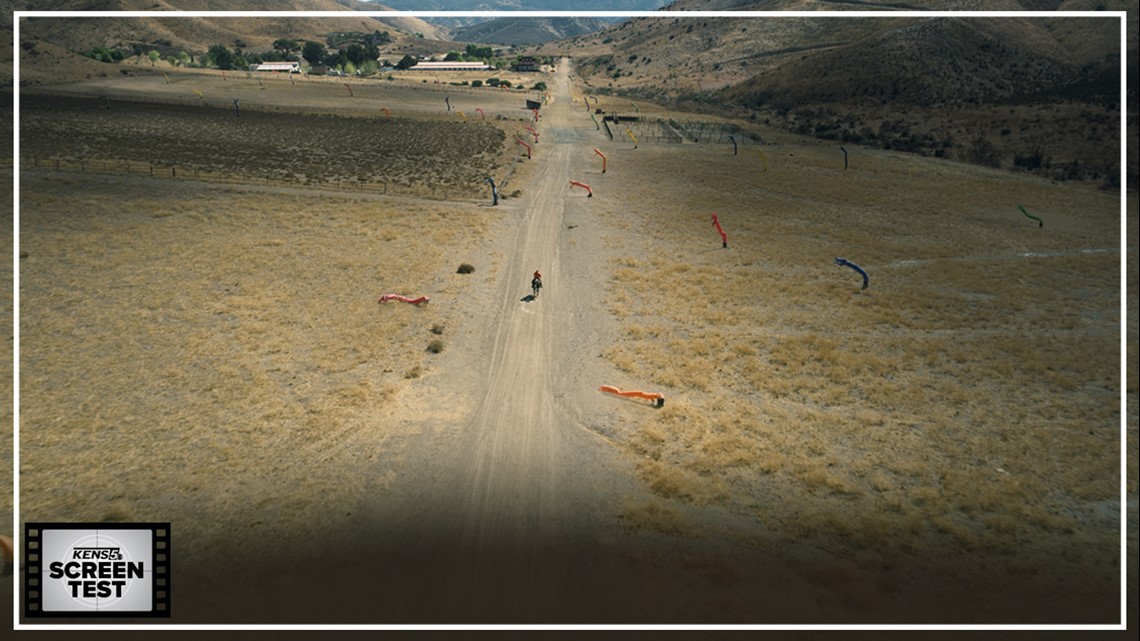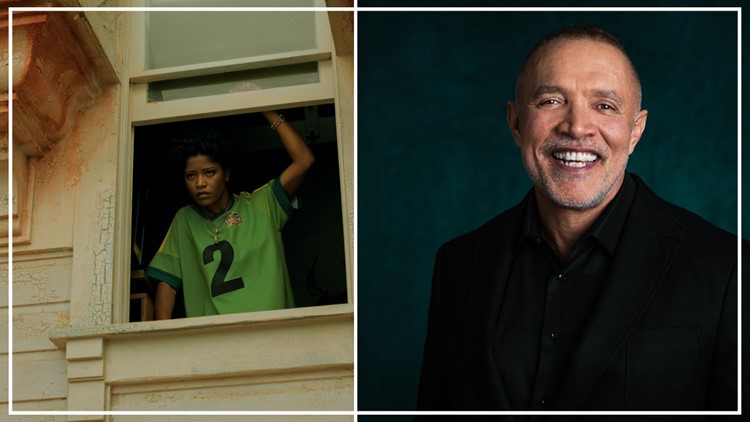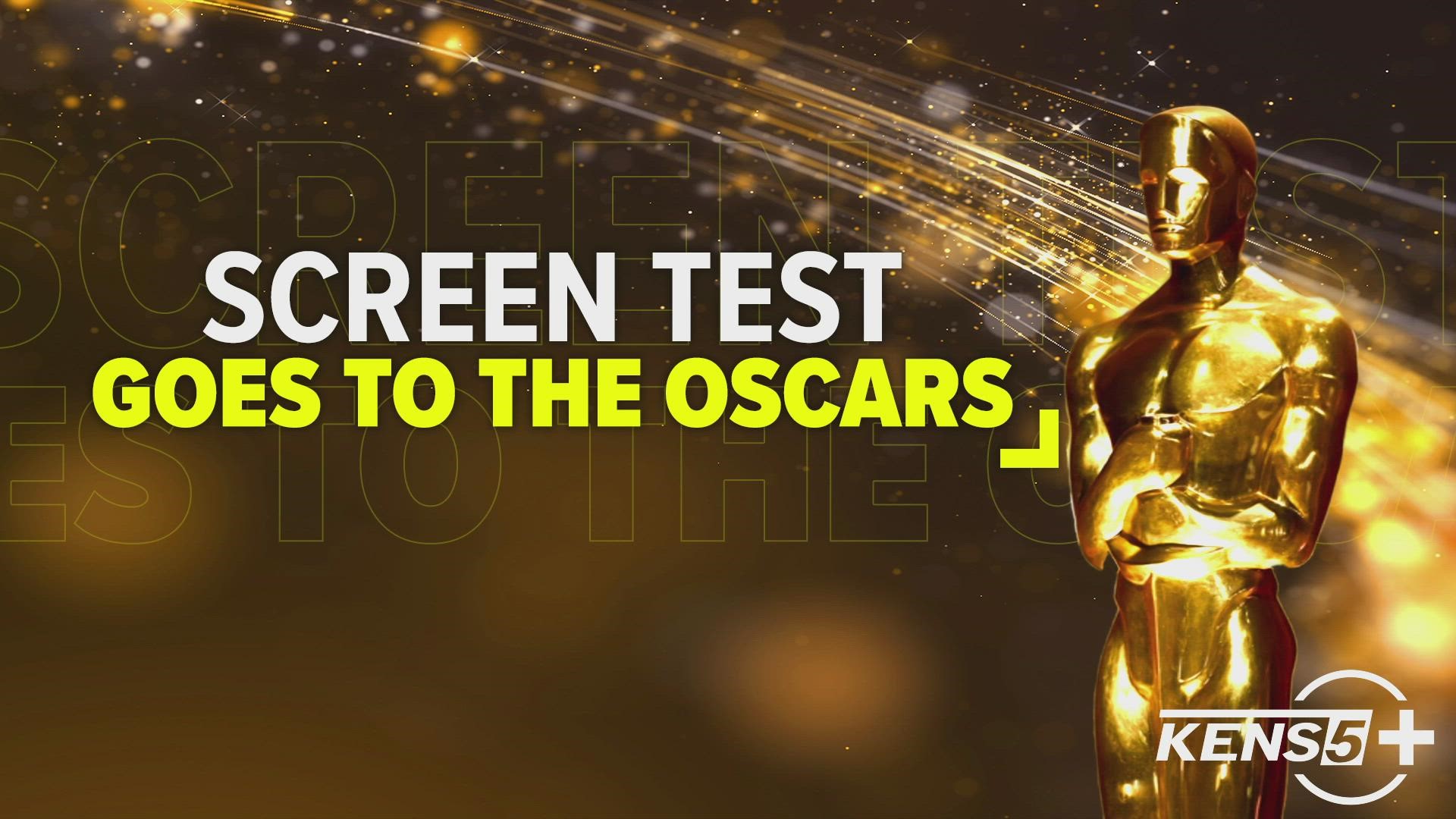TEXAS, USA — Michael Abels enjoys recounting the story of his breakthrough into the film industry, one centered around a phone call that he initially thought was the work of pranksters. On the other end: Jordan Peele, himself about to make a Hollywood splash with his Oscar-winning debut "Get Out."
Three movies later, Peele and Abels' creative partnership remains a fruitful one, yielding iconic new riffs on hip-hop classics and subversive takes on music that will send chills down viewers' spines.
Abels' newest work is no different, though the scale has been magnified. The music of "Nope" – the latest film directed by Peele and composed by Abels, out in theaters now – is peppered with dissonant melodies harkening back to his contributions for "Get Out" and "Us." But a film that shapeshifts at various points into chilling horror, adventure story, bombastic Western and awe-inspiring UFO thriller also needs a shapeshifting soundscape. To that end, Abels has created a versatile musical score running the gamut of Hollywood history, helping to establish distinct points of reference for the kind of movie Peele is evaluating and memorable cues to thrill audiences.
Speaking with KENS 5 film critic David Lynch over the phone, Abels talked about his creative partnership with Peele, how he tackled a project that needed to riff on multiple genres and creating new music with sincerity.
(This interview has been edited for clarity and length.)
David Lynch: When did you first hear about the idea Jordan had for his next movie after "Us," and how fully formed of an idea was "Nope" at that point?
Michael Abels: He sent me the script, and so far that's been the beginning of the process of working with him. It wasn't just an idea; it was a fully formed script, and a lot of what is on the screen was in that original screenplay. He's fully aware, not only of his dialogue which he's written, and which is just as you see it – insightful and funny – but he's also well aware of what the larger themes of the piece are. So we talked a lot about the idea of what's a bad miracle, in the sense of how the music needed to have both a sense of terror, but also, "Oh my God," this sense of awe you would have looking at something that's, you know, out of this world. So that was there from the beginning.
Also, he genuinely wants creative ideas from the people who are on his team. Even though he's the generator of the idea, he is open to exploring what other ideas his spark generates, both for himself and for his team and for the actors. It's a bit of a journey we go on as we learn what the story's about.
I've seen you talk about your score for "Get Out" where you and Jordan come up with this concept of gospel horror, and what that might sound like; it seemed like that was a driving ethos on that movie. Was it the same with this idea of a bad miracle and deciphering what that might sound like?
Precisely, yes. On this film, there was that overall ethos, but it wasn't about coming up with a sound; that's the expression of emotion that the characters have in response to the situation. I wasn't trying to come up with an otherworldly music, necessarily. More so their response to the situation that they're in. And then, also, this film has a lot of different genres of music.
Yes, it does!
There are parts of it that seem as scary as a horror movie, but it's also very much a Western in a very modern way. And yet, the last third of it certainly is an action-adventure as well. So it was important for the score to be able to show people that, yes, this film reminds you of these genres, and this is how this film can be in that genre. The music helps create that for the audience.


This score is so versatile. How does your creative process change when there's so many different genres of music to create your own spin on?
I started taking piano lessons at age 4. My earliest memories are music. It just affected me so emotionally, as it does all of us, but I think it affected me even more than your average person. I'm the kind of mind that likes puzzles; as a kid, I was interested in things like how does this magic thing work? What is going on here? And so whenever I've heard different genres I've always thought, "What makes that sound the way it does?" Because music has the same DNA at the base. Why and how can music be in such different genres? Because that's always been my interest, I feel like I can switch genres pretty easily.
But what I do also is I usually adopt the methods of that particular style of music. It's really like cooking; if you want to cook an authentic genre of food, you've got to go back to the styles of the people, the techniques of the people who make it. If I'm sound-designing music, I'm really coming from the sound first and then layering sound. And if it's big orchestral music, sometimes I'm notating that music to check out how it looks on the page, because there are so many notes to keep track of. And then the harmonic language of each genre, I'm also really conscious of how I'm mixing harmonies to make it sound the way it should.
In keeping with that analogy, what was the first ingredient, so to speak, or what was the first sound that you found as an entryway into the score for "Nope"?
With each of those genres, I had to attack each one separately. It was like four different entry points, if that makes sense. When you've got it all complete, it looks like you always knew what you were doing. But on the way to that there are things that you try and you're like, "Oh, not that, that's not gonna work." Fortunately, those things get left out, and the things that all do seem to connect to each other, you leave in and it looks like you always intended that. But each one of those started from a certain point, and I kind of met myself in the middle.
One of the definite entry points was a piece of music called "The Run," one of the most exciting places in the score. The DNA of that is from a piece that I had written before that Jordan was listening to while he was writing the script. When I wrote that music, the idea that you see on the screen – I don't want to give any spoilers, but – what's going on the screen during that music was nothing like I thought when I wrote the music. But Jordan wanted to try temping through it, which means putting in music just to see how it played.
And it worked so great. I think we were both kind of amazed. So as the film came together, we ended up actually editing that piece to make it work with the picture and now it's like a huge feature of the score. And that's really surprising and fun.
I'm so glad you brought up "The Run," because it's got to be one of the most thrilling moments when your score crescendos during that moment in the third act. It's so interesting because it starts off on a much more suspenseful note before blowing into this pump-your-fists-in-the-air piece of music. Is there any catharsis in creating a piece like that when elsewhere the score is so moody and mercurial and haunting?
My job is to bring every human emotion and experience to life with music. And each one of those is a trick. I think any cue that really causes you to feel the way that the filmmaker intends you to feel is joyful, it really is. But a piece like "The Run" – which is all about joy, really – to hear just such a brilliant orchestra perform it and have it play so well, it fills me with I think the same excitement and joy that it fills the audience with.
I wanted to also talk about the Jupiter's Claim theme-park theme, which to me feels both grandiose, but also commercial, but also still immersive. When you're creating that piece, is it easier for you to distance yourself from certain points of reference, or do you dive right into them?
Where I'm coming from is, this is big music that says "big Hollywood Western," you know? Either a film or a TV show, but also something from decades ago, when that sort of film would have been the whole talk of Hollywood. I've seen lots of those movies and TV shows, and I've no problem generating that energy. It's played a lot in the film, but it's also kind of used as source music; it's playing through a speaker in Jupiter's Claim or while Jupe is trying to start his big Star Lasso Experience show. But when it comes to writing, even though I know that it's being used as satire, the way you do that well is to treat it like it's legit. So to me, that was a legit cue that I hope a director of a film in the '50s would have said, "Hey, that's great, we should use that as the theme for our Western."
It's certainly transportive in that way, I think you accomplished that.
Thank you.
"Nope" marks three collaborations between yourself and Jordan. I'm wondering what changes you've noticed in him since "Get Out" when it comes to how he thinks about and incorporates music in his films?
Jordan is a perpetual student of everything—every aspect of filmmaking and of every human experience. So my experience is that he only just gets smarter, really, more knowledgeable from the experience of working with me and through the other material that he's produced. That's one thing.
Every one of his films, even though it's clearly in the world of of Jordan's creative mind, each one is a different story with different characters and has something different to say. There are certainly differences that match each of the different stories, but part of what it is that he's doing is he's trying to find new stories to tell and new ways to work. Some of that, I think, is just his own personal challenging of himself as an artist and of all the rest of us on his team to keep surprising people.
One of the things that Jordan has said he set out to accomplish with "Nope" is honoring the experience of the big Hollywood blockbuster while also critiquing it. I'm wondering how that extends to your job as a composer. How do you create a piece of music inspired by years of what's come before while still making sure it feels like its own singular work of art?
Treat it like it's legit. I treat every one of Jordan's music needs as if it needs to stand alone on its own as completely legit and believable. And whether Jordan wants to use that for drama or for satire or for a bit of comedy is his choice. It's gotta be: What makes it work is that it's authentic. And so I'm always coming from, like, "This is the important thing. This is legit. This is serious."



